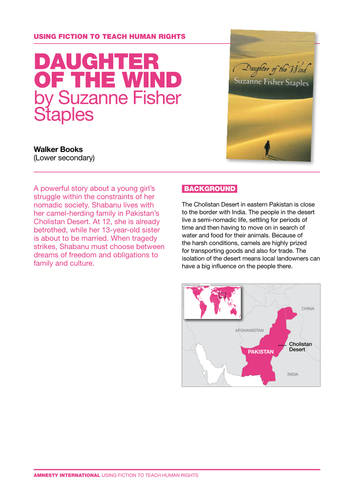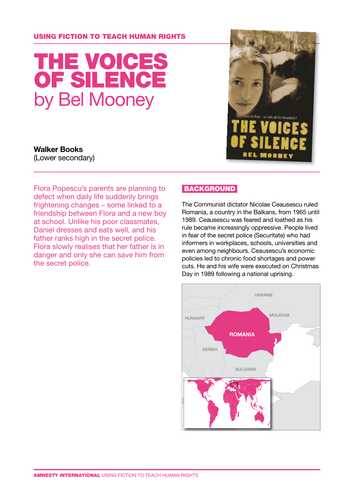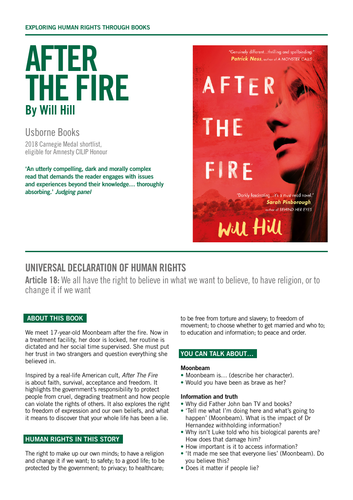Amnesty International's Shop
Here you will find a huge range of ideas, resources and support for teaching across different ages by human rights theme. Our resources are written by specialist advisors, they encourage engaged classroom discussions about human rights using creative approaches to understanding truth, freedom and justice.














